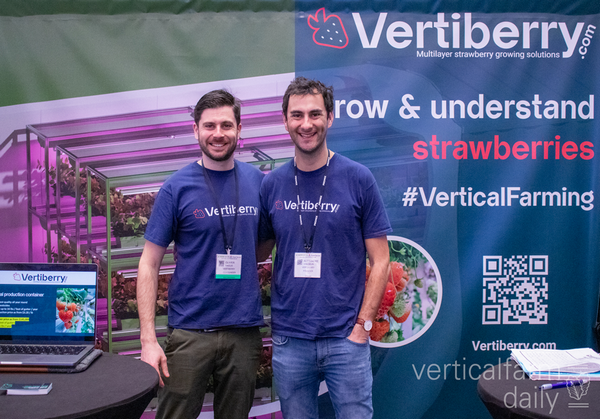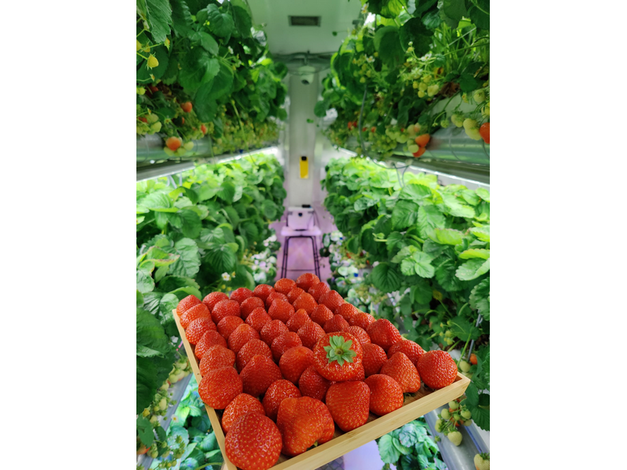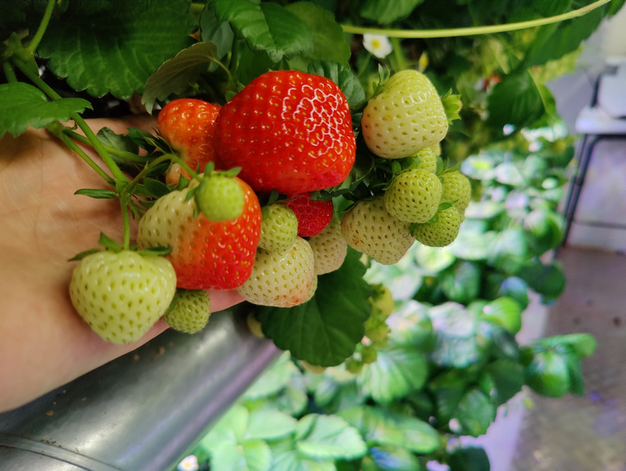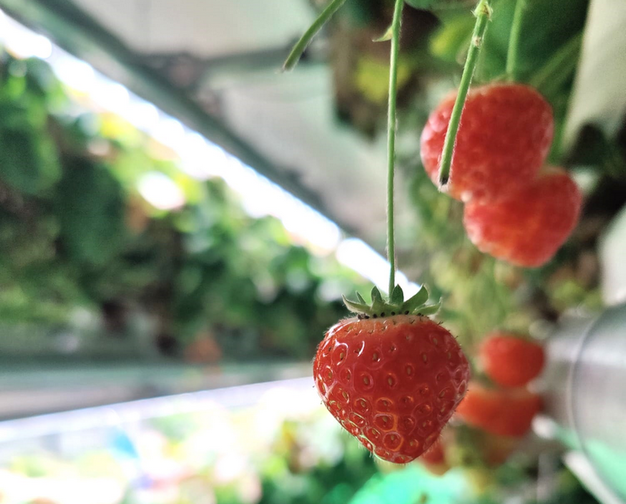"Strawberries grown indoors are hot and trending in Canada. There's a lot of buzz around it, however, we still have to wait and see what is truly going to be realized in the end. Globally, there're a lot of new berry projects to stimulate local production of berries," says Alexandre van Deun, Co-founder of Vertiberry, a Belgian agtech supplier specializing in strawberry growing systems.

Olivier Paulus and Alexandre van Deun
$5M strawberry project
It's not without reason that Alexandre is talking berries again. Together with the University of Ottawa, Fieldless, and Ceragen, Vertiberry has been selected for the Homegrown Innovation Challenge to optimize strawberry cultivation in vertical farms. A Vertiberry Data Container has been installed and is used for all the trials. The project runs until December 2024, and if we get through the second phase, we aim to scale up the project even further.
"Our goal is to create the optimal growing conditions for strawberry plants to reach the highest yield and produce the tastiest strawberries," says Alexandre.
The University of Ottawa is researching pollination without (bumble)bees in this project. Another project aims to improve photosynthesis, obtain an optimal spectrum for the plants, and find the perfect lighting conditions to increase yield. Backed by the Weston family, four of the 11 companies selected will have a chance to win five million Dollars to expand their solutions to a commercial scale.

Greenhouses vs vertical farms? What is more affordable?
The cost structure of high-tech greenhouses and vertical farms is similar, with labor being the most critical, quickly followed by energy.
The availability of seasonal workers, its increasing cost, and the reliance on workers from far away push the industry to automate as much as economically possible. Big changes are expected in the coming years, with picking robots as the big game changer. Both greenhouses and vertical farms will benefit from this trend.
Energy is the second cost driver. However, Canada has grid prices that can go as low as 5$ cents/ kWh, which makes it interesting to grow berries in Canada. Furthermore, the grid is powered by renewable sources.
The main difference between a vertical farm and a greenhouse is the allocation of energy. The larger greenhouses will often have their CHP that will produce electricity, heat, and CO2. The electricity will be used to power the LEDs or HPS lights; the excess is sold to the grid. Heat will be blown into the greenhouse and used indirectly to dehumidify by opening the windows. The CO2 is injected into the greenhouse, but a big part is lost when opening the windows. Due to environmental and legislative reasons, there is a trend to abandon CHPs in favor of more sustainable energy sources.

A vertical farm is fully driven by electricity to turn on the LEDS and power the climate control systems built around a smart dehumidification strategy. Dehumidification is often a forgotten element that has a tremendous impact on both plant growth and operational costs. Energy recovery and optimizations are a must to drive the overall cost per unit down.
At Vertiberry, we believe that we can reduce our OPEX in the coming 3 years and enable our clients to be, at worst, at par with greenhouses and, at best, quite below the cost of a high-tech greenhouse production for strawberries.
"On top of that, we believe that our technology and biological expertise will enable us to increase the yield of strawberries with a target above 30 kg / linear growing meter/year," according to Alexandre. Together with predictable, high-quality, and pesticide-free strawberries, we believe that the market will appreciate this value proposition.

What's next?
Vertiberry has signed a large-scale project in North America with a production capacity well above 10 tons/ week. We also see an increasing interest in Island states and remote areas with either cold or hot climates and will continue our sales efforts in these regions.
For more information:
Alexandre Van Deun, Business Development & Co-founder
Vertiberry
Tel.: +32 2669 8365
mail@vertiberry.com
https://vertiberry.com
